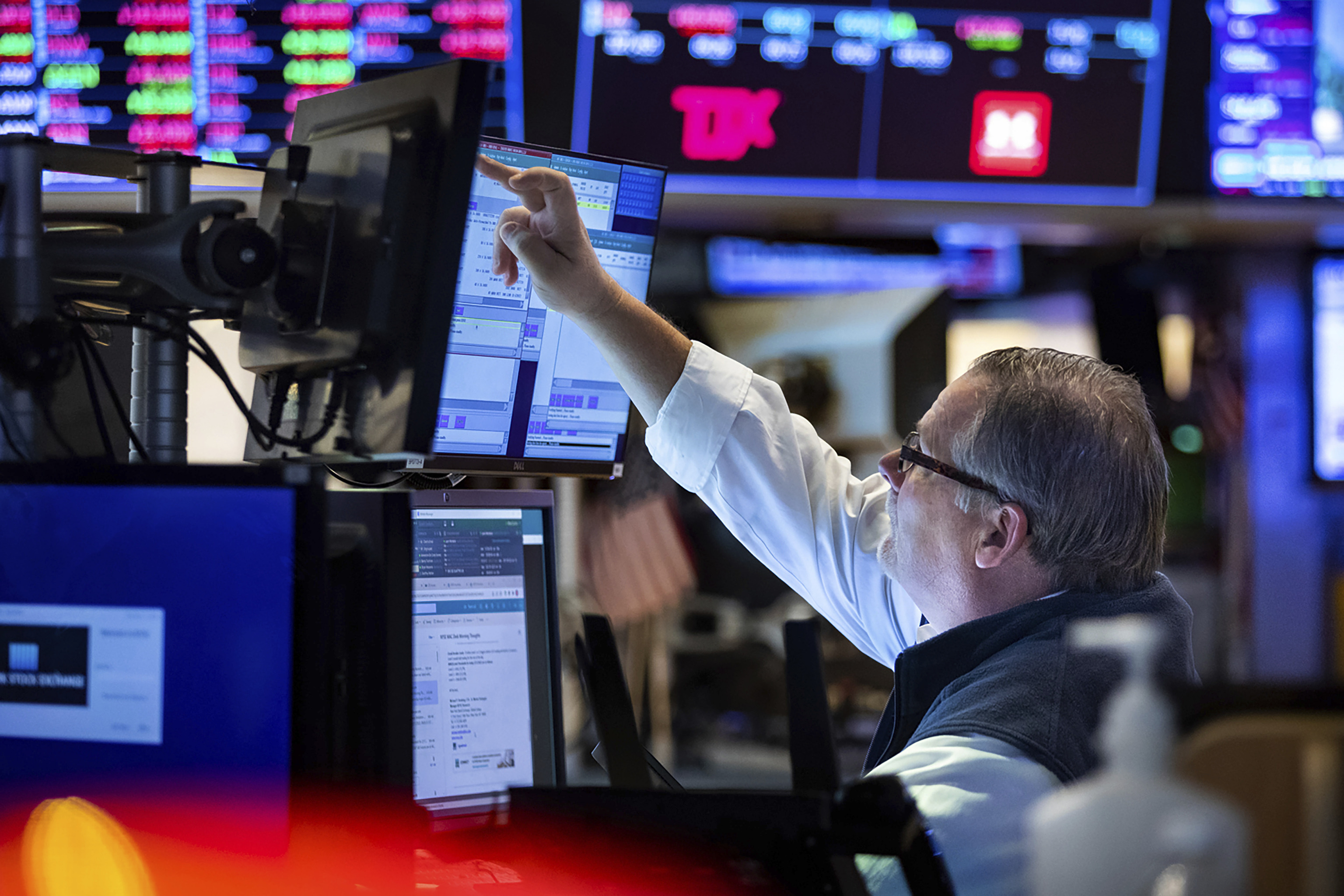Donald Trump is now spending more time retracting his statements than he did destabilizing the market with his trade war and harsh remarks against almost everyone, including the Federal Reserve Chairman, Jerome Powell. Once again, the markets have put him in his place.
The massive sell-off of bonds, followed by the dollar's decline, has pushed the White House towards a more conciliatory stance. The dollar has dropped over 10% against safe havens like the Swiss franc and the Japanese yen, as well as losing ground against the euro, hitting a three-year low at 1.15. This is challenging for an administration claiming to be market-friendly.
After Trump attacked Powell, calling for his dismissal last week and urging the central bank to lower interest rates to prevent economic slowdown, the president stated on Tuesday night that he has no intention of removing the Fed chairman, whose term ends in May 2026. Wall Street responded with significant gains exceeding 3%. Europe also follows suit, seeing the possibility of a large-scale trade war diminish, leading major stock markets to almost conclude the three-week crisis triggered by Donald Trump's infamous tariff moves. The Ibex 35 is 1% away from erasing all losses, the Dax 2%, and the American stock market a little over 3% away after Wednesday's session.
The Nasdaq technology index surged over 4% during the session. It's worth noting that this index has been heavily hit in recent weeks, with significant drops in the fantastic 7 of American technology, such as Apple, Alphabet, Amazon, or Nvidia, among others, not to mention Tesla, which just reported concerning results with a 71% profit drop in the first quarter of the year and declining sales. This prompted Elon Musk, the founder of the electric car company, to publicly announce his intention to focus more on the company, stepping back from his prominent role as a White House advisor. The company's shares rose nearly 8% in this session.
On another note, the European Commission fined Apple 500 million euros for monopolistic practices in its mobile app store and Meta 200 million euros for its former requirement for users to pay a subscription to avoid personalized ads. Despite this, Apple and Meta were trading higher at the opening, gaining over 3% and around 6%, respectively.
Investors' buying spree extends to the S&P 500, with gains exceeding 3% mid-session on Wall Street.
But Trump is not only refraining from threatening to dismiss the Federal Reserve chairman, he also appears to be in negotiations with China to reach a tariff agreement, far from the 145% initially promised by Donald Trump, which China, in response, raised to 125%. Now, the US president has publicly acknowledged that these tariffs "will be substantially reduced." From Beijing, a spokesperson responded that the door for trade negotiations was "wide open."
The escalating confrontation between the superpowers has been shaking financial markets throughout April. From China's nationalist perspective, this aftermath of the trade war between the two geopolitical giants is seen as follows: Trump first tightens the screws, then, seeing his rival standing firm with more cards to play, gradually retreats.
The American, after initiating his second term with an initial 20% tariff hike on Chinese imports, escalated to 34% and then 84%. Beijing retaliated in kind. Trump escalated to 145% tariffs on the Asian giant, to which China responded with a 125% increase, while Communist Party spokespeople kept chanting a mantra: "We will fight to the end."
China also wielded other weapons, starting by blacklisting a dozen American companies, including major defense firms, and restricting exports of critical minerals crucial for US companies to manufacture chips and other tech products. They also struck at the heart of Hollywood by announcing a reduction in the number of American films screened in the world's second-largest cinema market.
In Beijing, it is remembered that after Trump claimed that many countries were "kissing his ass," referring to allies calling to negotiate tariffs, he reiterated readiness to strike a deal with China, but insisted that Chinese leader Xi Jinping should make the first call for talks to begin. However, Xi did not pick up the phone.
Beijing held its ground, and Trump eventually exempted certain electronic devices manufactured in China (smartphones, computers, hard drives, memory chips, and semiconductor manufacturing equipment) from his so-called "reciprocal tariffs." Meanwhile, China struck back again, this time targeting the aerospace industry, instructing its airlines to reject further Boeing deliveries and cease purchases of US aircraft equipment and parts. Days later, after China returned the first two Boeing planes already in its territory, the US expanded the trade dispute with tariffs on solar panel imports produced by Chinese manufacturers in Southeast Asian countries.
"Despite the shock that President Donald Trump's tariffs have had on the global economy, in Beijing, we see the trade war as a powerful catalyst that could accelerate China's technological advancement and integration with the domestic market. In the long run, this could turn out to be beneficial for us," stated a Ministry of Commerce official from the Asian giant a few days ago.
On Easter Monday, following reports that the Trump administration was pressuring over 70 trading partners to limit their trade ties with China in exchange for tariff relief, Beijing warned that they would retaliate against any country playing Trump's game and acting against Chinese interests. A day later, US Treasury Secretary Scott Bessent stated that high tariffs were unsustainable and he expects a de-escalation in the trade war.
